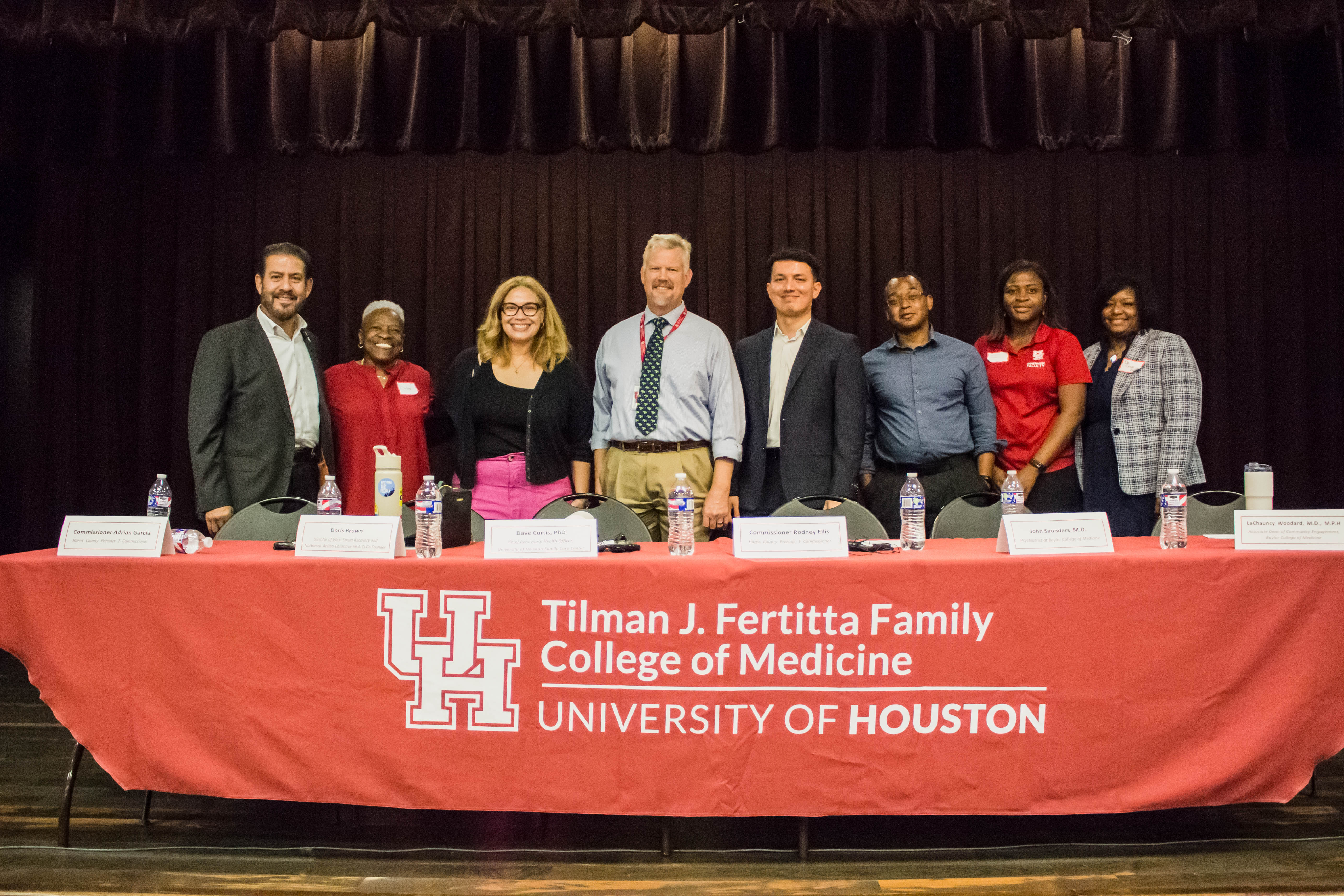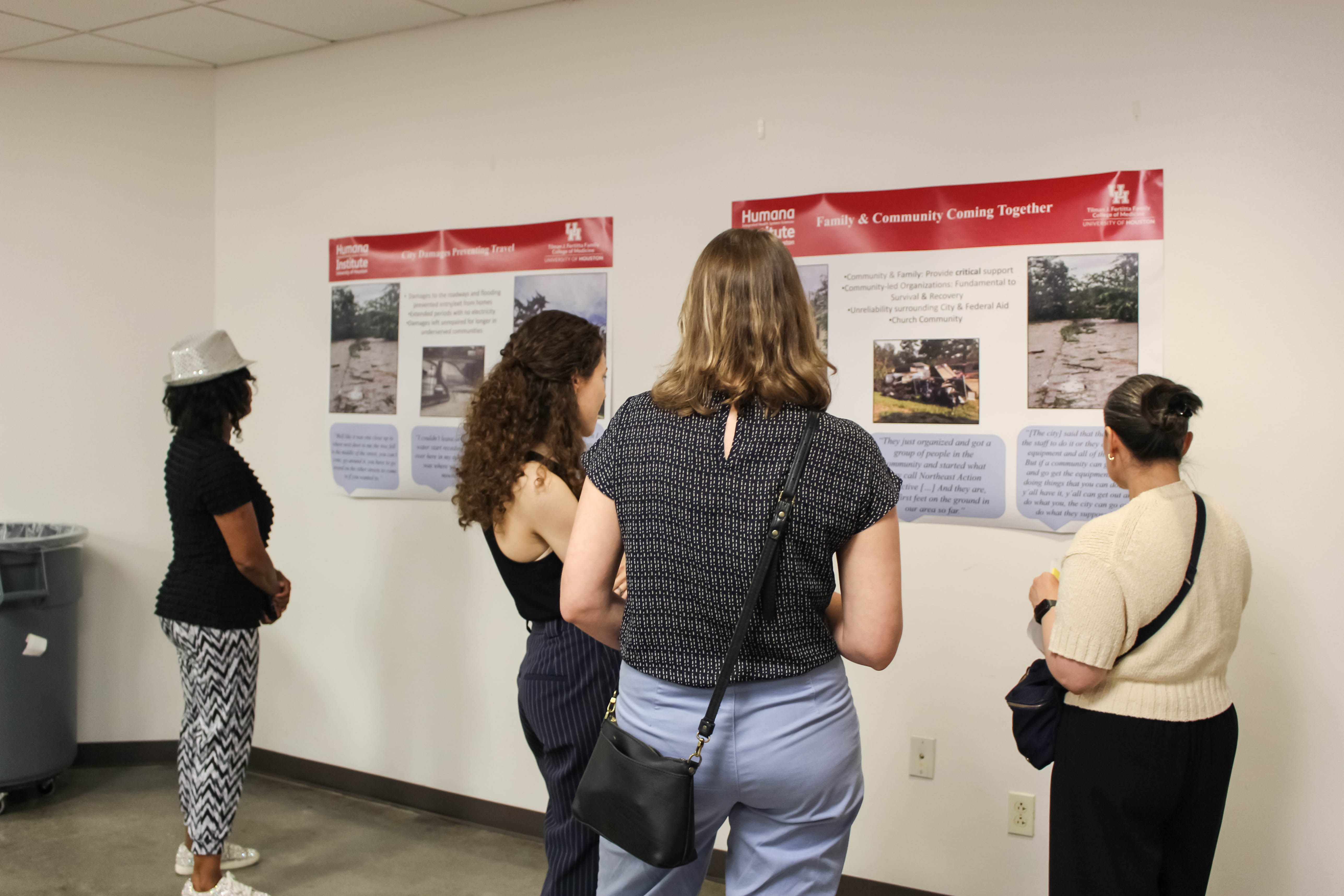The University of Houston’s Humana Institute brought together academic experts, health care professionals, elected officials and community leaders to discuss the long-term mental health impacts of recurring natural disasters – and how Houston can better prepare, respond and recover.
“Preparedness isn’t just about physical infrastructure – it’s about emotional infrastructure, too.” - Dr. Lola Adepoju, director of the Humana Institute at UH
The town hall event, led by Dr. Lola Adepoju, director of the Humana Institute, and supported by a grant from the National Academies of Sciences, Engineering and Medicine, was the culmination of a two-year study that captured the lived experiences of residents in some of Houston’s most vulnerable neighborhoods – Kashmere Gardens, Fifth Ward, East End, Galena Park, Acres Homes and Northeast Houston – and the findings were presented in a moving gallery walk exhibit. Using data from the study’s community conversations and photovoice, each image in the gallery depicted the personal impact of disaster – the water lines on living room walls, the torn roofs and the lingering stress.
“We wanted to create a space where people could see themselves and their stories reflected,” Adepoju said. “The gallery walk wasn’t just data – it was dignity. The photos and reflections remind us that behind every policy discussion are real lives and real consequences.”
Following the gallery walk, a panel of community leaders that included Harris County Commissioner Adrian Garcia, Alan DeLeon from Harris County Commissioner Rodney Ellis’ office, Dr. Dave Curtis of the Tilman J. Fertitta Family College of Medicine, Dr. John Saunders and Dr. LeChauncy Woodard of the Baylor College of Medicine, and Doris Brown of West Street Recovery, explored solutions for improving disaster preparedness, increasing access to mental health care and removing structural barriers to recovery.
“Our communities are dealing with ongoing trauma and mental health challenges that are only worsened by repeated extreme weather events—challenges that don’t go away during a hurricane or flood,” Adepoju said. “Disaster resilience must include mental health support as part of the foundation – not as an afterthought.”


Among the solutions Harris County leaders discussed were the county’s first-ever climate action plan, efforts to improve flood infrastructure, and the deployment of mental health SmartPods in local communities.
Dr. Curtis, who also serves as the chief behavioral officer at the UH Family Care Center, emphasized the difference between mental illness and mental health, encouraging a culture of consistent self-care, and introduced the Mental Health First Aid program, offered by UH, as a valuable resource for people to recognize and respond to mental health challenges in themselves and others.
“Mental health isn’t just the absence of illness, it’s something we have to actively care for every day,” Curtis said. “Programs like Mental Health First Aid give people the tools to recognize when someone is struggling and offer support in a meaningful, informed way.”
Plans are already underway for future community-driven events to continue the conversation and expand access to critical resources. And with storms growing stronger and more frequent, the Humana Institute is committed to supporting Houston’s most impacted and at-risk neighborhoods through evidence-based, community-informed solutions.
“Preparedness isn’t just about physical infrastructure – it’s about emotional infrastructure, too,” Adepoju said.
